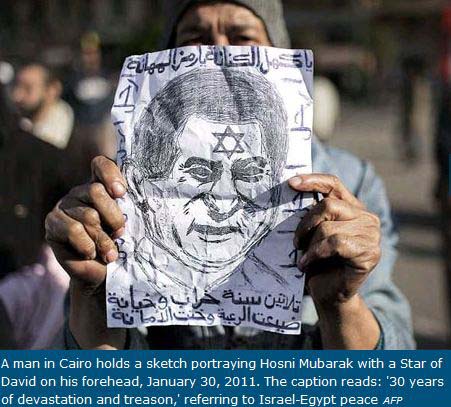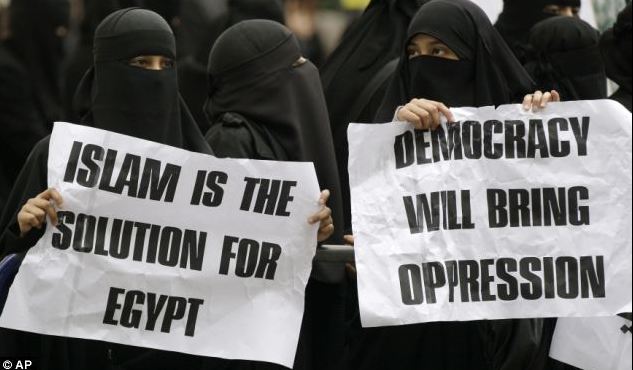Hosni Mubarak took over as president after his friend and mentor Anwar Sadat was murdered in 1981 by islamic extremists.
Over the past thirty years, Mubarak has confirmed and strengthened the fragile peace negotiated by Sadat between Israel and Egypt.
He has worked with, and counted as friends, successive American presidents and UK Prime Ministers.
He has comdemned the use of violence by extremist groups. To give just one example, after the Israeli ‘Cast Lead’ operation to stop incessant rocket attacks from Gaza, Mubarak said that Hamas was to blame for spilled Arab blood, and that resistance movements must take responsibility for the welfare of their people.
His friendships with Western leaders, and his recognition of Israel and its right to exist have been dangerous for him, as they were for Anwar Sadat, and have cost him political and popular support.
Despite the ‘no see, no tell’ policy of some media organisations, independent sources have pointed out that one of the reasons for protests against Mubarak is precisely that he is perceived to be a ‘Jew lover’ and a traitor to Islam.
Egypt is no paradise. There is widespread poverty and corruption. I have been alarmed at the lack of action by authorities to protect Coptic Christians and other minority groups.
But most of Egypt’s problems persist in spite of Mubarak’s efforts, not because of them.
Nine out of ten women in Egypt suffer the mutilation called female circumcision. Mubarak has twice outlawed this practice, without success – the imams say it part of the islamic faith. He has encouraged his wife to be active in promoting education for women, and in lobbying for an end to FGM.
He has ruled over a country in which 82% of the population believe adulterers should be stoned, 84% believe apostates from Islam should face the death penalty, and 77% believe thieves should be flogged or have their hands cut off.
These same people want democracy. In a country in which the only credible opposition is the Islamic Brotherhood.
Supporters of the Islamic Brotherhood protesting in London make clear what history makes obvious – that democracy and sharia are incompatible. The Islamic Brotherhood wants democracy only long enough to implement islamic law.
Yet after a few days of protests, the US President, shortly followed by the Prime Minister of Australia, have called for Mubarak to step down immediately.
This is all the more astonishing after the failure of either the US or Australia, or any other major Western power, to offer unqualified support to the Iranian protestors a year ago, protests against a genuinely vile and violent regime.
Israel has been dismayed, not only by the threat to its own security should the Islamic Brotherhood take control of Egypt, but by the wholesale and opportunistic abandoment of one of the West’s key allies in the Middle-east.
Other states friendly with the US will be watching closely. Why should Yemen or Saudi Arabia, for example, or Israel, have any faith in American promises of friendship and support?
Not that Obama’s actions are winning him any friends. The general view in the Middle-east seems to be that the US is selling out its allies and interfering in Egypt’s affairs in pursuit of its own agenda.
Hosni Mubarak, and the people of Egypt, deserve better from the West.





Leave a Reply